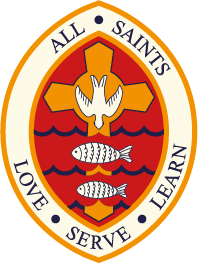Geography
Co-Faculty Leaders: Miss A Sharpe and Mrs R McDonnell
It is our intent for the Geography element of our school curriculum to inspire pupils with a curiosity and fascination about the world and its people that will remain with them for the rest of their lives. Teaching should equip pupils with knowledge about diverse places, people, resources and natural and human environments, together with a deep understanding of the Earth’s key physical and human processes. As pupils progress, their growing knowledge about the world should help them to deepen their understanding of the interaction between physical and human processes, and of the formation and use of landscapes and environments. We want our children to gain confidence and practical experiences of geographical knowledge, understanding and skills that explain how the Earth’s features at different scales are shaped, interconnected and change over time.
Key Stage 3
In Year 7 students focus on the building blocks of Geography. Students will develop their knowledge of key Geography skills. Students will foster a love of learning about the World we live in and understanding of relevant geographical issues. Over the course of the year students will learn about: Map and Atlas Skills, Africa, Asia, India and Tectonics.
In Year 8 students focus on the Wider World. Students will further develop their knowledge of major areas and issues around the world. Over the course of the year students will learn about: Ecosystems, Population, Climate, Rivers and start to explore the use of Geographical Information Systems (GIS).
In Year 9 students will begin to investigate current areas of conflict surrounding geographical issues. Students will further develop their evaluative skills, helping to prepare them for study at Key Stage 4. Over the course of the year students will learn about the Middle East, Glaciation, Coasts, Resource Management and World Food.
Key Stage 4
At Key Stage 4 students can choose to study AQA GCSE Geography. This course covers all aspects of world geography and a range of ICT, video, textbooks and resources are used to cover examples from all over the world in a colourful and exciting way. Students continue to build on the skills leant at Key Stage 3 and develop their knowledge of Physical and Human Geography in preparation for the GCSE exams.
- Paper 1: Living with the Physical Environment (35%) – 1 hour 30 minutes written exam
The challenge of natural hazards – earthquakes, volcanoes, tropical storms and climate change
Physical Landscapes in the UK – coasts and glaciation
The Living World – hot deserts and tropical rainforests
Geographical skills
- Paper 2: Challenges in the Human Environment (35%) – 1 hour 30 minutes written exam
Urban issues and challenges – Lagos and London
The Changing Economic World – Nigeria and the UK
The Challenge of Resource management – water, food and energy
Geographical Skills
- Paper 3: Geographical Applications (30%) – 1 hour 15 minutes written exam
Issue Evaluation (pre-release booklet – 12 weeks before the exam)
Fieldwork (2 compulsory day trips to contrasting environments)
Geographical Skills (map, atlas, mathematical, graphical)
What can I do with a Geography qualification?
Geography is a subject which is included in the English Baccalaureate. This is the list of subjects which Sixth Form Colleges and universities prefer a student to have studied at least to GCSE level. Geography is highly valued by a range of employers and education institutions for its combination of knowledge, integration and competence at training in key skills. Nationally it is one of the most popular optional GCSE subjects. Geography is ideally suited to careers in finance, personnel, planning conservation, public services, marketing, retailing, computing, management, civil service and many more.
